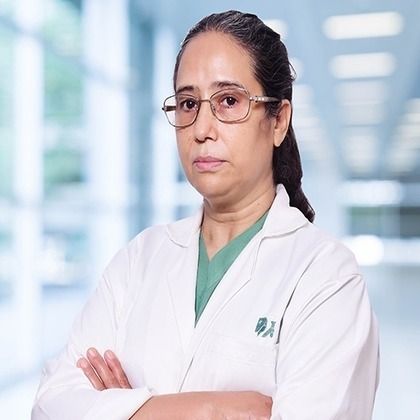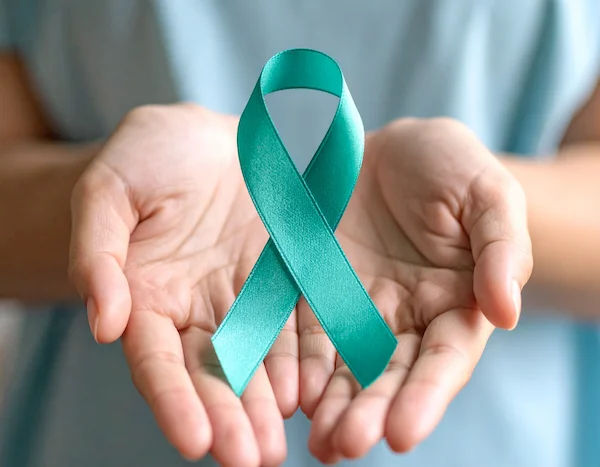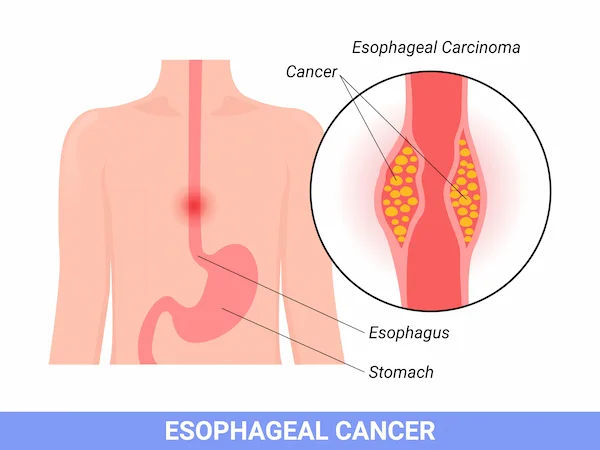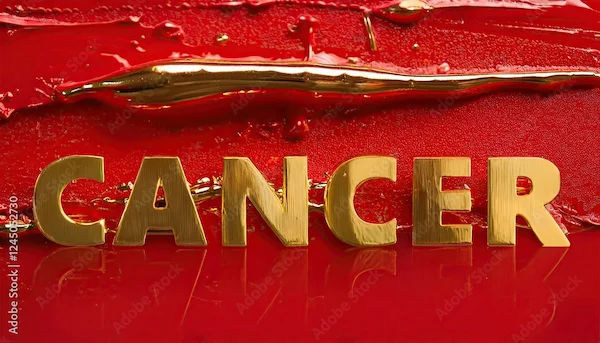Your Chemo Companion: Essential Guide to Preparation and Care
A practical guide to help patients prepare for chemotherapy, manage side effects, and ensure proper care throughout treatment.

Written by Dr. Mohammed Kamran
Reviewed by Dr. Dhankecha Mayank Dineshbhai MBBS
Last updated on 13th Jan, 2026

Introduction
Facing chemotherapy can feel overwhelming. The mere mention of the word often brings a wave of uncertainty and fear. But knowledge is power, and being well-prepared can transform this challenging experience from a source of anxiety into a manageable journey. This guide is designed to be your practical companion, walking you through every step from the questions to ask before you begin to the daily strategies that will help you feel more in control during treatment. Think of this not just as a medical process, but as a chapter in your life where preparation, self-care, and a strong support system make all the difference. We’ll cover how to get your body and mind ready, what to expect on treatment days, and how to proactively manage side effects to maintain your quality of life.
Understanding the Basics: What Chemotherapy Really Is
Before diving into preparation, it's helpful to understand what you're preparing for. Chemotherapy is a type of cancer treatment that uses powerful drugs to destroy rapidly dividing cells in your body. Its primary goal is to eliminate cancer cells, shrink tumors, or prevent cancer from spreading. However, because it targets all rapidly dividing cells, not just cancerous ones, it also affects healthy cells, which is the root cause of most side effects.
How Chemo Works: Targeting Rapidly Dividing Cells
Cancer cells multiply quickly and uncontrollably. Chemo drugs are designed to interrupt this process, either by killing the cells outright or stopping them from dividing. They work systemically, travelling throughout your bloodstream to reach cancer cells that may have spread from the original tumor. This is different from localised treatments like surgery or radiation.
Common Types of Chemotherapy and Their Goals
Your oncology team will prescribe a regimen specific to your type of cancer, its stage, and your overall health. This regimen might include:
- Curative Chemo: Aimed at eliminating all cancer cells.
- Adjuvant Chemo: Given after surgery to kill any remaining microscopic cancer cells.
- Neoadjuvant Chemo: Used before surgery to shrink a tumor, making it easier to remove.
- Palliative Chemo: Not aimed at cure, but at relieving symptoms and slowing cancer growth to improve quality of life.
Understanding your treatment's goal helps frame the journey and set realistic expectations.
Consult a Medical Oncologist for the best advice
The Pre-Chemo Checklist: Getting Your Life in Order
Adequate preparation is your first line of defence. Taking care of practical, medical, and nutritional details beforehand can significantly reduce stress once treatment begins.
Medical Preparation: Questions for Your Oncologist
Your first appointment is crucial. Come with a notebook and a trusted friend or family member. Don't be shy about asking questions. Key questions include:
- What is the goal of my chemotherapy?
- What are the specific drugs I will receive, and what are their common side effects?
- What is the schedule for my treatments?
- How will we monitor if the treatment is working?
- What side effects should I report immediately?
- Are there any clinical trials I might be eligible for?
Clear communication with your oncology team is the cornerstone of safe and effective care.
Practical Preparation: Organising Your Home and Support System
Think of this as nesting before a big event. A little organisation goes a long way.
- Meals: Cook and freeze meals in individual portions. Set up a meal train with friends and family using online tools.
- Help Schedule: Designate a point person to coordinate visits and help with chores, so you’re not overwhelmed.
- Comfort Zone: Create a comfortable resting area at home with pillows, blankets, entertainment, and water within easy reach.
Nutritional Preparation: Building a Healthy Foundation
Eating well before starting chemotherapy helps your body withstand treatment. Focus on a balanced diet rich in protein (for cell repair), complex carbohydrates (for energy), and healthy fats. Stay hydrated. Consider meeting with a nutritionist who specialises in oncology to create a personalised plan.
What to Expect on Your First Chemo Day
The unknown can be scary. Knowing what will happen can ease first-day jitters.
The Treatment Environment and Process
You'll likely receive treatment in an outpatient infusion center. You’ll be seated in a comfortable chair or bed. A nurse will start an IV, often using a port-a-cath if you have one. The infusion itself can take minutes to hours. You’re monitored throughout for any immediate reactions. It’s usually a very calm environment.
What to Bring to Your Infusion Session
Packing a "chemo bag" can make the time pass more comfortably. Essentials include:
- A warm sweater or blanket (infusion rooms can be cold).
- Snacks and water.
- Entertainment: books, tablet, headphones with music or podcasts.
- A notepad to jot down questions or notes.
- A friend or family member for support.
Managing Common Side Effects: A Proactive Approach
Side effects vary greatly, but being proactive is key to managing chemo side effects at home.
Combating Fatigue and Conserving Energy
Cancer-related fatigue is different from ordinary tiredness. Listen to your body. Pace yourself, take short naps, and prioritise tasks. Gentle exercise, like short walks, can actually boost energy levels.
Nutritional Strategies for Nausea and Appetite Changes
Nausea is common but manageable with modern anti-nausea medication. Eat small, frequent meals instead of three large ones. Stick to bland, easy-to-digest foods (bananas, rice, toast, soup) on tough days. Ginger tea or candies can also help settle your stomach.
Oral Care Guide to Prevent Mucositis
Sores in the mouth (mucositis) can be painful. Use a soft-bristle toothbrush and a gentle, alcohol-free mouthwash. Rinse frequently with a salt and baking soda solution to keep the mouth clean and promote healing.
Addressing "Chemo Brain" and Cognitive Changes
Coping with chemo brain fog is a real challenge. It refers to memory lapses, trouble concentrating, and mental fuzziness. Use tools to compensate: keep a detailed calendar, set reminders on your phone, make lists, and don’t be hard on yourself. This is usually temporary.
The Emotional Journey: Caring for Your Mental Health
Your emotional well-being is as important as your physical health. Emotional support during cancer treatment is non-negotiable.
Acknowledging Your Feelings: Fear, Anxiety, and Resilience
It’s normal to feel a rollercoaster of emotions: fear, anger, sadness. Allow yourself to feel these without judgment. Journalling, meditation, and mindfulness can be powerful tools for processing these feelings and building resilience.
Building Your Support Network: Family, Friends, and Professionals
Lean on your people. Be specific about how they can help. Also, consider joining a support group or speaking with a therapist who specialises in oncology. If you find your anxiety or depression is becoming unmanageable, consulting a therapist online with Apollo24|7 can provide accessible and immediate support.
Life Between Sessions: Navigating Your New Normal
The days and weeks between chemo cycles are for recovery. Pay attention to your neutrophil count and immune system; avoid large crowds and practice meticulous hygiene to prevent infection. This is the time to gently reintroduce activities you enjoy, rest deeply, and prepare mentally and physically for the next round.
Conclusion & Call to Action
Undergoing chemotherapy is a profound journey that tests your physical and emotional strength. However, as this guide illustrates, you are not powerless. By arming yourself with knowledge, preparing practically, and building a robust circle of support, you can navigate this path with greater confidence and control. Remember, this treatment is a step toward healing. Be kind to yourself, celebrate small victories, and trust in the resilience of your mind and body.
You have a team of medical professionals dedicated to your care. Utilise them fully. If at any point you experience severe or unexpected symptoms, or simply need reassurance, don't hesitate to consult your doctor. For quick consultations, you can connect with an oncologist online via Apollo24|7 to discuss your concerns from the comfort of your home.
Consult a Medical Oncologist for the best advice
Consult a Medical Oncologist for the best advice

Dr.sanchayan Mandal
Medical Oncologist
17 Years • MBBS, DrNB( MEDICAL ONCOLOGY), DNB (RADIOTHERAPY),ECMO. PDCR. ASCO
Kolkata
Dr. Sanchayan Mandal Oncology Clinic, Kolkata

Dr. Sanchayan Mandal
Medical Oncologist
17 Years • MBBS, DNB Raditherapy, DrNB Medical Oncology
East Midnapore
VIVEKANANDA SEBA SADAN, East Midnapore

Dr Prasad Eswaran
Medical Oncologist
22 Years • MBBS,DMRT,MD,DM
Chennai
Apollo Proton Cancer Center, Chennai
(25+ Patients)

Dr. Ruquaya Ahmad Mir
Surgical Oncologist
20 Years • MBBS, DNB
Delhi
Apollo Hospitals Indraprastha, Delhi
(25+ Patients)

Dr. Gopal Kumar
Head, Neck and Thyroid Cancer Surgeon
15 Years • MBBS, MS , FARHNS ( Seoul, South Korea ), FGOLF ( MSKCC, New York )
Delhi
Apollo Hospitals Indraprastha, Delhi
(25+ Patients)
Consult a Medical Oncologist for the best advice

Dr.sanchayan Mandal
Medical Oncologist
17 Years • MBBS, DrNB( MEDICAL ONCOLOGY), DNB (RADIOTHERAPY),ECMO. PDCR. ASCO
Kolkata
Dr. Sanchayan Mandal Oncology Clinic, Kolkata

Dr. Sanchayan Mandal
Medical Oncologist
17 Years • MBBS, DNB Raditherapy, DrNB Medical Oncology
East Midnapore
VIVEKANANDA SEBA SADAN, East Midnapore

Dr Prasad Eswaran
Medical Oncologist
22 Years • MBBS,DMRT,MD,DM
Chennai
Apollo Proton Cancer Center, Chennai
(25+ Patients)

Dr. Ruquaya Ahmad Mir
Surgical Oncologist
20 Years • MBBS, DNB
Delhi
Apollo Hospitals Indraprastha, Delhi
(25+ Patients)

Dr. Gopal Kumar
Head, Neck and Thyroid Cancer Surgeon
15 Years • MBBS, MS , FARHNS ( Seoul, South Korea ), FGOLF ( MSKCC, New York )
Delhi
Apollo Hospitals Indraprastha, Delhi
(25+ Patients)
More articles from Cancer
Frequently Asked Questions
How long does a typical chemotherapy session last?
The length varies widely depending on the drugs used. It can range from 30 minutes to several hours. Your first session might be longer as the nurses administer the drugs slowly to monitor for reactions.
Can I work while undergoing chemotherapy?
Many people continue to work, but it depends on your job's physical demands, your side effects, and your energy levels. Discuss a flexible schedule or remote work options with your employer. It’s important to listen to your body and not overexert yourself.
What are the best foods to eat the day before chemo?
Focus on easily digestible, nutritious foods. A balanced meal with lean protein (chicken, fish), complex carbs (brown rice, sweet potato), and well-cooked vegetables is ideal. Avoid greasy, spicy, or overly rich foods that might upset your stomach.
Is it safe to be around children and pets during treatment?
Generally, yes. However, because your immune system may be compromised, you should avoid contact with anyone who is sick. Practice good hygiene, like frequent handwashing. For pets, avoid cleaning litter boxes or bird cages due to infection risk.
What is a 'port-a-cath' and is it necessary?
A port-a-cath is a small device implanted under the skin, usually in the chest, that provides easy access to a vein for blood draws and IV medications. It’s not always necessary, but it can save your veins from repeated needle sticks and is highly recommended for longer treatment plans.




